Concussion cartoon both tribute and caution as Brayshaw bows out
Concussion-induced microscopic changes to Angus Brayshaw’s 28-year-old brain forced the AFL player’s painful decision to retire, prompting cartoonist Mark Knight to send him off in style
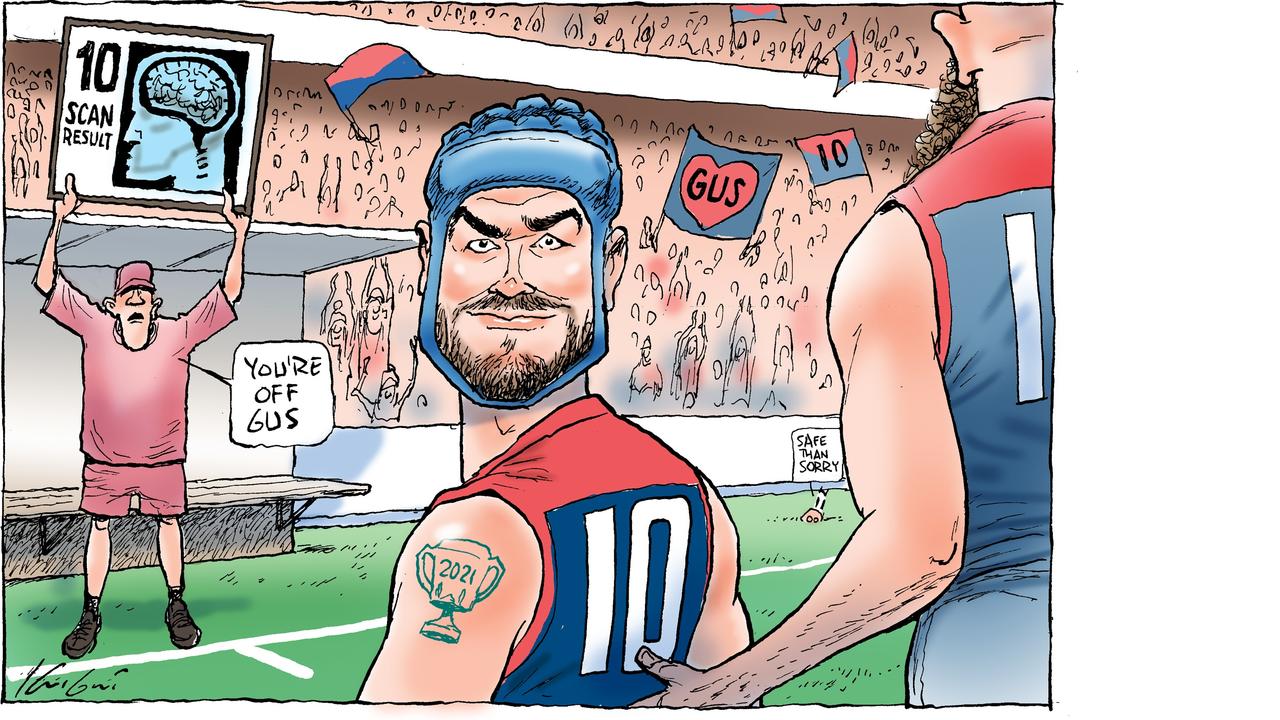
READING LEVEL: ORANGE
Concussion* in contact sport, and its long-term effects, is a major issue facing players, clubs and administrators. The health and legal ramifications* are now beginning to emerge, with some players showing symptoms of Chronic* Traumatic* Encephalopathy* (CTE), a condition caused by repeated impacts to the head, which leads to a type of brain damage similar to dementia*. In the AFL, 60 players are taking legal action against the League, seeking compensation* for the effects of head knocks experienced throughout their playing careers.
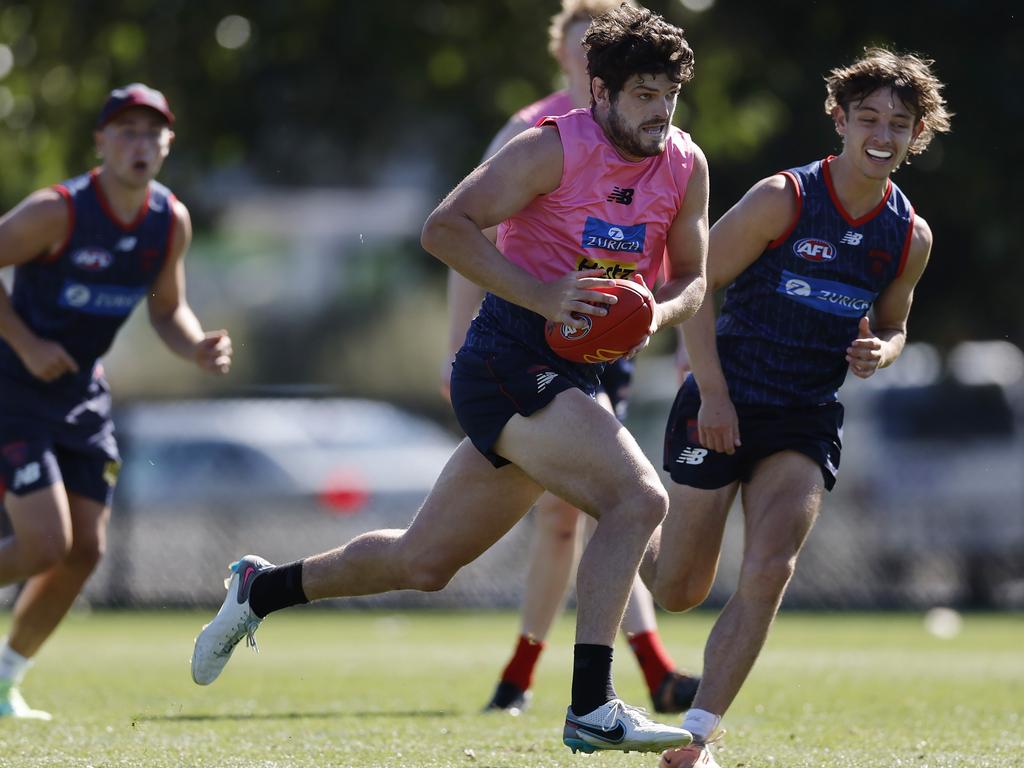
Last week it became all too real for the football community when Melbourne Demons star midfielder Angus Brayshaw, a 2021 Premiership player, retired from the game due to doctor’s advice. Repeated knocks to the head over the years had taken its toll and a recent scan showed “microscopic* changes” to his brain.

In a preliminary* final last year, Brayshaw was knocked unconscious during play by Collingwood backman Brayden Maynard while competing for the ball. Maynard was cleared of intentionally harming his opponent but it was to be the last game for the Demons star. His neurologist* said Brayshaw could risk serious impairment* if he continued to play. He was one year into a lucrative* five-year contract but decided to retire from the game. At 28 years old, he still had a lot of life left to live and you need a healthy brain for that.
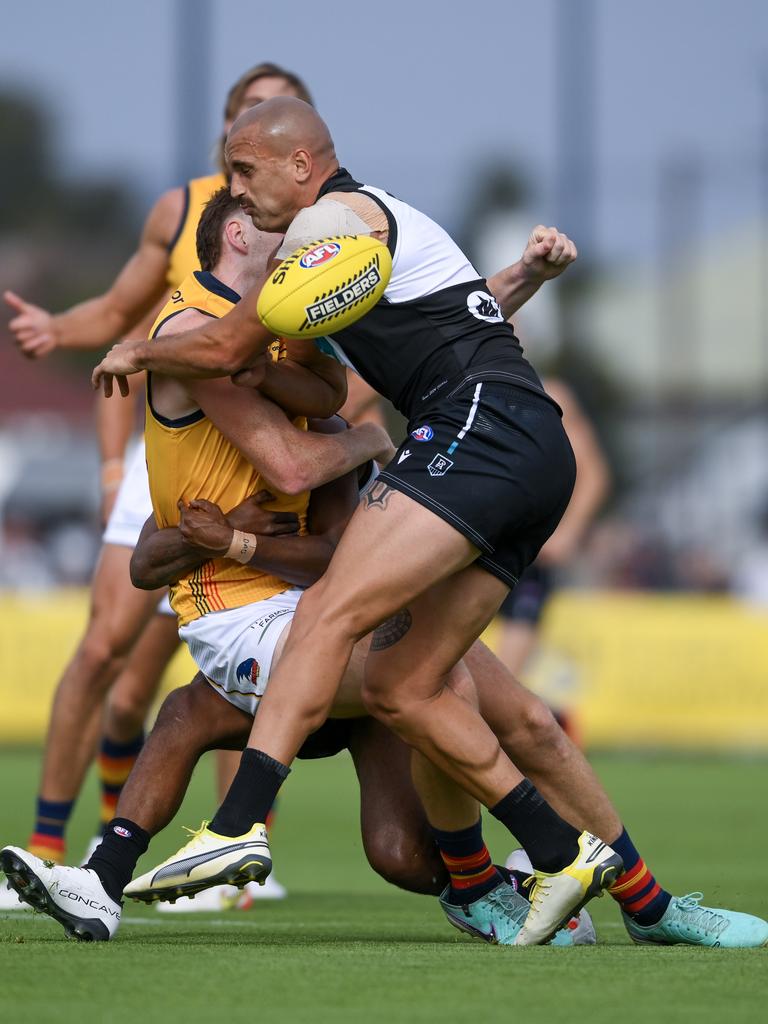
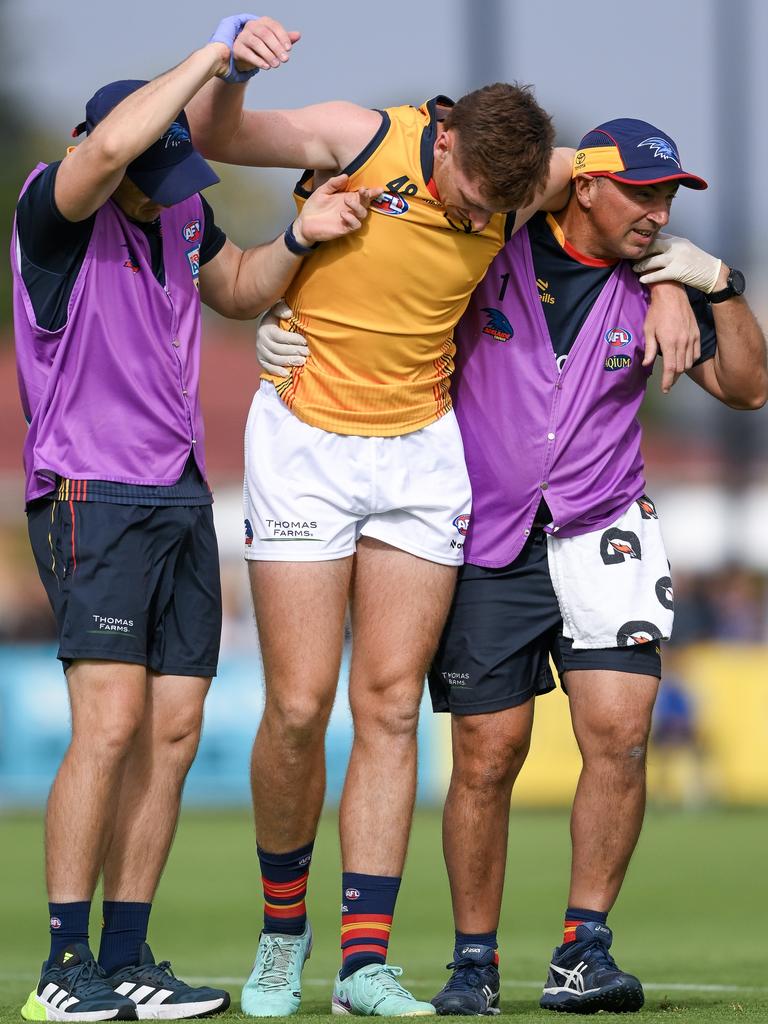
I thought his retirement would be a good topic for my daily cartoon in the Herald Sun and a chance to open up debate on how opinions on concussion in sport are changing. In days past if players were knocked out and dragged from the field of play, you would see them sent back on a little while later. It was seen as a measure of courage “not to let the boys down” and get back out there. Now with concussion protocols*, players must sit out a period of time before they can play again. In the AFL it is one week, but that may increase.
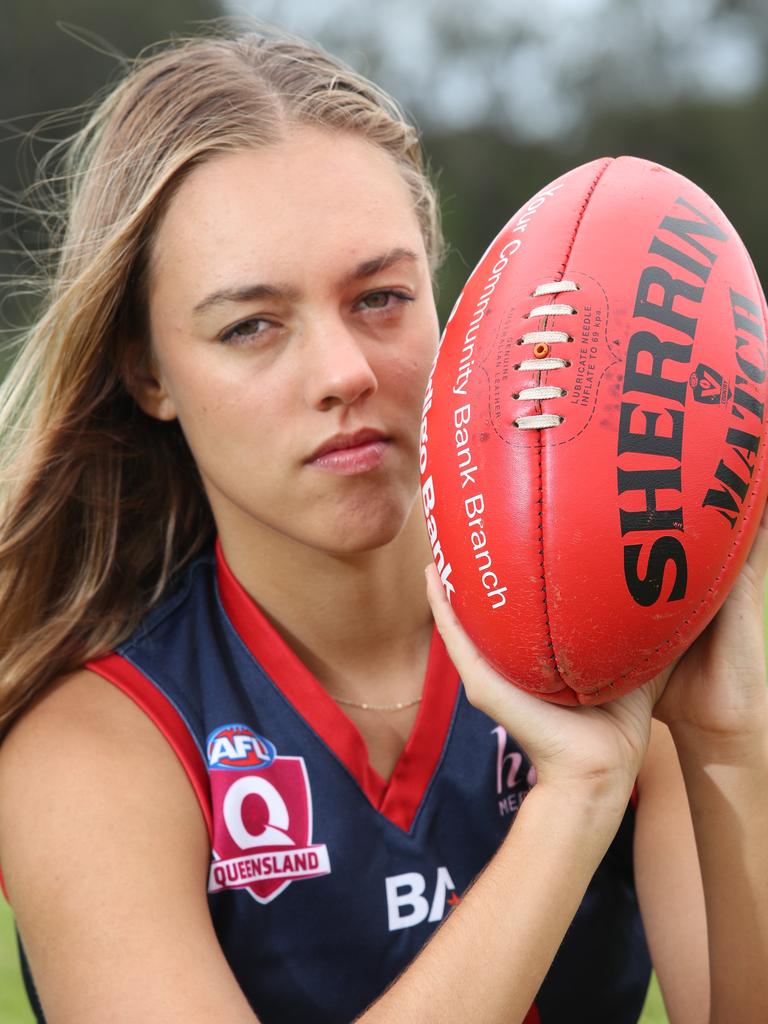
I wanted to show how attitudes were changing and sports were being forced to recognise the medical advice. My first thought was to sketch Angus Brayshaw in his playing kit. He wore a helmet, due to previous concussions, so I pictured him on the ground, and the idea was to have the crowd honour him as he walked from the field for the last time (which he didn’t get to do in his last game due to that knock from Maynard). But I wanted to illustrate why he was leaving the field and had to come up with a way of illustrating that it was due to medical advice.
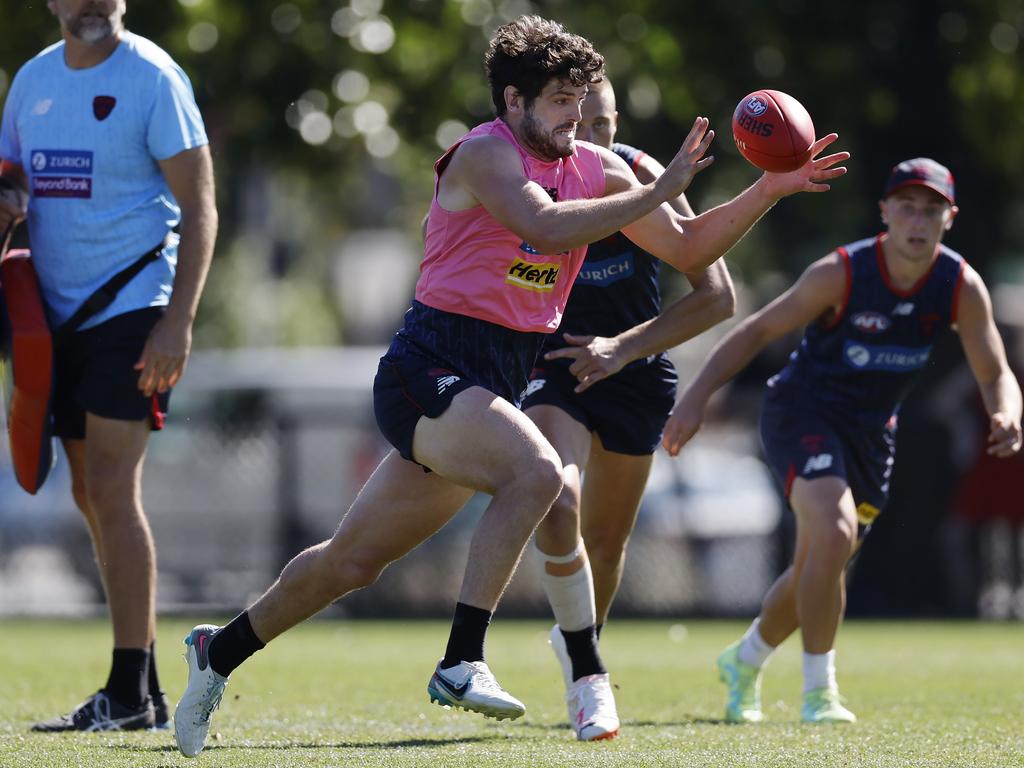
I recalled how the AFL had changed the rules regarding a team’s runner coming onto the field during the game. It was stopped. Now they can only come onto the ground to deliver coaching orders after a goal is scored. To communicate with the team, they have to stand on the sideline and hold up signs for the players to see. The signs are quite cryptic*, with bizarre images of bowls of noodles, pictures of Rocky Balboa* and lightning bolts sending coded messages to those on the field.
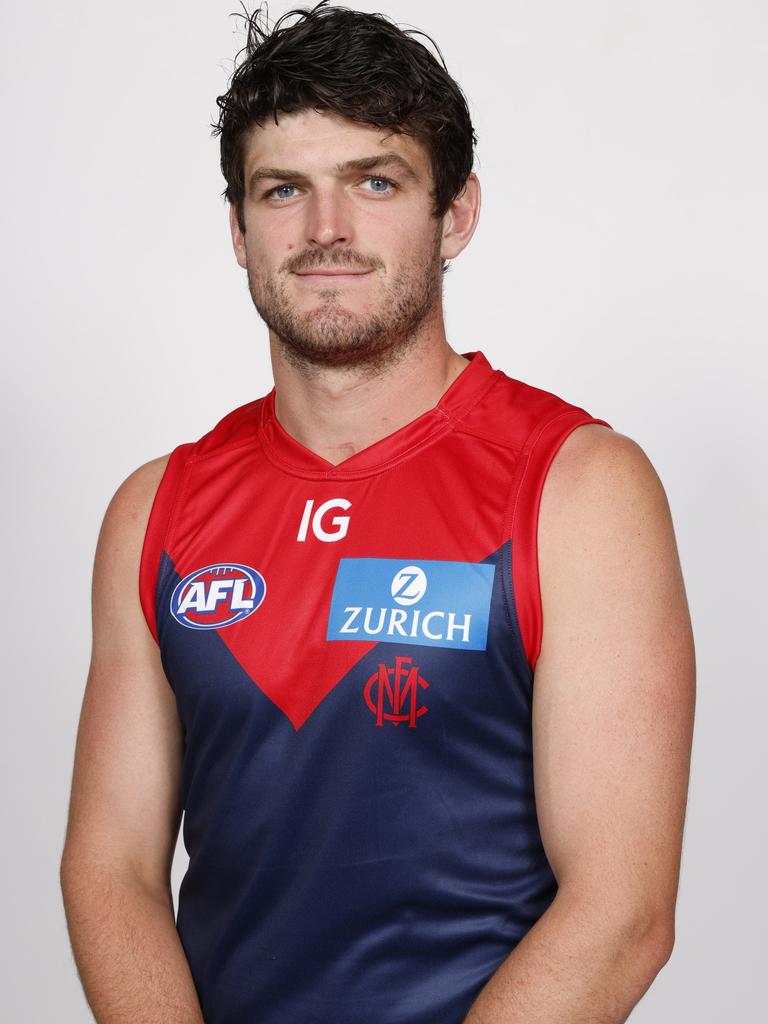
With those obscure images in mind, my idea would be the runner for the Demons holding up Brayshaw’s brain scan results. The CAT scan was a clear message for him to leave the field. In the cartoon, Angus looks directly at the reader in acknowledgment and acceptance of the advice; he knows it’s time to exit. In the cartoon, I have his captain Max Gawn extending him an understanding pat on the back and the grandstands are full of Melbourne supporters with banners extolling* their admiration and respect for Number 10’s service as a player and for making the right decision for his future.
WATCH THE VIDEO
POLL
- GLOSSARY
- concussion: the most common and mild form of traumatic brain injury due to impact to the head, neck or body
- ramifications: consequences, possible results or outcomes of a decision or action
- chronic: continuing for a long time, a persistent problem or situation that may require ongoing medical attention and can limit activities in daily life
- traumatic: deeply disturbing, something causing severe and lasting emotional shock and pain
- encephalopathy: damage or disease affecting the brain
- dementia: a collection of symptoms caused by disorders affecting the brain
- compensation: money that someone who has experienced inconvenience, loss or suffering claims from the person or organisation responsible, or from the state
- microscopic: very small, tiny, only visible using a microscope
- preliminary: opening, early, initial, coming before a more important action or event
- neurologist: medical doctor specialising in diagnosing and treating conditions of the brain, spinal cord and nerves
- impairment: loss of function, deterioration or damage to the functioning of a body part, organ or system that can be caused by injury or disease
- lucrative: profitable, money-making, something that can make a lot of money
- protocols: system of rules and acceptable behaviour that people or organisations should follow
- cryptic: mysterious, hard to understand, something with hidden meaning
- extolling: praising someone very enthusiastically
EXTRA READING
Major changes coming to kids’ sport
Concussion rethink call for schools
Hi-tech mouthguards to help tackle concussion
QUICK QUIZ
- What is CTE?
- How many AFL players are taking legal action against the League?
- What happened to Angus Brayshaw in a preliminary final last year?
- What used to be seen as a measure of courage in AFL and other codes?
- What are the three examples of cryptic images runners hold up from the sideline?
LISTEN TO THIS STORY
CLASSROOM ACTIVITIES
1. Cartoon analysis
After reading and analysing the Mark Knight cartoon in the Kids News article, answer the following questions to help you get the full meaning out of his drawing:
What is the main issue Mark Knight is highlighting?
Who is portrayed in the cartoon?
How are they portrayed?
What is the humour in the drawing?
Who might agree with his viewpoint?
Who might disagree or possibly be offended by this viewpoint?
Do you think he makes a good point? Explain your answer.
Time: allow 25 minutes to complete this activity
Curriculum Links: English, Personal and Social, Critical and Creative Thinking
2. Extension
Write a response to this cartoon from the viewpoint of one of the people or objects portrayed in the cartoon. Think, what would be their response to the speech bubble and satire from the cartoon.
Write or draw your response below.
Time: allow 15 minutes to complete this activity
Curriculum Links: English, Visual Arts, Personal and Social, Critical and Creative Thinking
VCOP ACTIVITY
Describe it
Look at the cartoon and make a list of five nouns that you see. Then describe those five nouns with five adjectives. Now add a preposition to those five nouns and adjectives.
Finally, choose your favourite bundle and put all the words together to make one descriptive sentence.
(For lower reading level articles, remove “add a preposition”)

